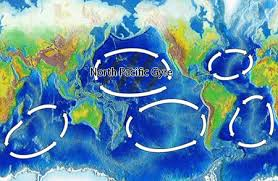In their last meeting of the year, New York City’s Council voted to ban styrofoam, require commercial composting and create more spaces for electric cars to encourage their adoption.
By unanimous vote, the Council banned the use of styrofoam take-out containers starting a year from now.
The biggest city to ban the ubiquitous packaging, about 23,000 tons of foam is used once and then thrown away in NYC every year. The city’s goal is keep 75% of waste out of landfills by 2030 – although styrofoam is technically recyclable, the fact is it rarely is.
In proposing the ban, Mayor Bloomberg said: "One product that is virtually impossible to recycle and never biodegrades" is plastic foam. "Something that we know is environmentally destructive and that may be hazardous to our health, that is costing taxpayers money and that we can easily do without, and is something that should go the way of lead paint."
Seattle, San Francisco, LA and dozens of smaller California cities have fully or partially banned the foam.
Since the foam is light and brittle, it breaks down into tiny pieces that find their way into the ocean, adding to the Pacific Gyre and other dead zones, which are increasing around the world. It’s become pervasive in the marine environment.

Styrene, which is used to make polystyrene, is listed as a possible carcinogen – it easily migrates from packaging into foods and beverages, and 100% of Americans have it in their bodies, says the EPA.
McDonald’s recently announced it would stop using styrofoam.
Commercial Composting
Another important vote will divert over 250,000 tons of food waste a year by requiring restaurants to separate it for composting.
About 1200 restaurants – that generate more than 1 ton of food waste per week – will be required to participate. Earlier this year, 100 restaurants voluntarily signed up for the program, which would recycle 70% of their waste.
A pilot composting program is also underway for homes, collecting food waste from 31,000 homes in three boroughs. That will be expanded to 100,000 single-family homes and 70 high-rise buildings across the city by 2015.
In related news on recycling, E-cycle NYC launched, where buildings with 10 or more apartments can get their waste electronics picked up free of charge.
Developed by NYC’s Department of Sanitation, Electronic Recyclers International and manufacturers, it is fully funded by electronics manufacturers. So far, 100 buildings have enrolled. It accepts all kinds of e-waste for recycling, from TVs to computer keyboards.
Electric Vehicles
Also proposed by Bloomberg, the City Council voted to equip 20% of the city’s parking spaces with electric vehicle chargers over the next seven years – 10,000 spaces.
There are about 600 electric cars in NYC’s fleet.
